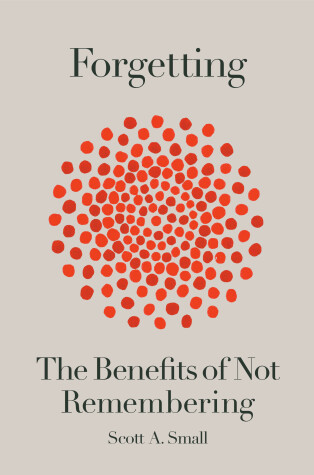
“Fascinating and useful . . . The distinguished memory researcher Scott A. Small explains why forgetfulness is not only normal but also beneficial.”—Walter Isaacson, bestselling author of The Code Breaker and Leonardo da Vinci
Who wouldn’t want a better memory? Dr. Scott Small has dedicated his career to understanding why memory forsakes us. As director of the Alzheimer’s Disease Research Center at Columbia University, he focuses largely on patients who experience pathological forgetting, and it is in contrast to their suffering that normal forgetting, which we experience every day, appears in sharp relief.
Until recently, most everyone—memory scientists included—believed that forgetting served no purpose. But new research in psychology, neurobiology, medicine, and computer science tells a different story. Forgetting is not a failure of our minds. It’s not even a benign glitch. It is, in fact, good for us—and, alongside memory, it is a required function for our minds to work best.
Forgetting benefits our cognitive and creative abilities, emotional well-being, and even our personal and societal health. As frustrating as a typical lapse can be, it’s precisely what opens up our minds to making better decisions, experiencing joy and relationships, and flourishing artistically.
From studies of bonobos in the wild to visits with the iconic painter Jasper Johns and the renowned decision-making expert Daniel Kahneman, Small looks across disciplines to put new scientific findings into illuminating context while also revealing groundbreaking developments about Alzheimer’s disease. The next time you forget where you left your keys, remember that a little forgetting does a lot of good.
Intriguing New Science. For much of human history and even for much of the last few hundred years - when our scientific knowledge has seemingly gone into warp drive itself, sleep was said to be nothing more than the land of dreams, that humans could work at peak efficiency without much of it at all. Forgetfulness, even in many circles now, has been seen as a negative of various extremes, from embarrassing to debilitating.
But what if we've had it all wrong, and forgetting is actually one of our more *useful* adaptations? What if sleep actually plays a significant part of this process?
Here, neuroscientist Small examines what we've learned - in many cases, much of it over the last decade in particular - about just how imperative forgetfulness is to the very existence of the human body and human society more generally. From the social/ societal benefits all the way to the molecular, intra-cranial benefits, Small examines it all in a text that is clear enough to work in the "popular science" realm while still giving plenty of technical and precise details. Very much recommended.
Reading updates
-
Started reading
-
7 March, 2021:
Finished reading
-
7 March, 2021:
Reviewed
